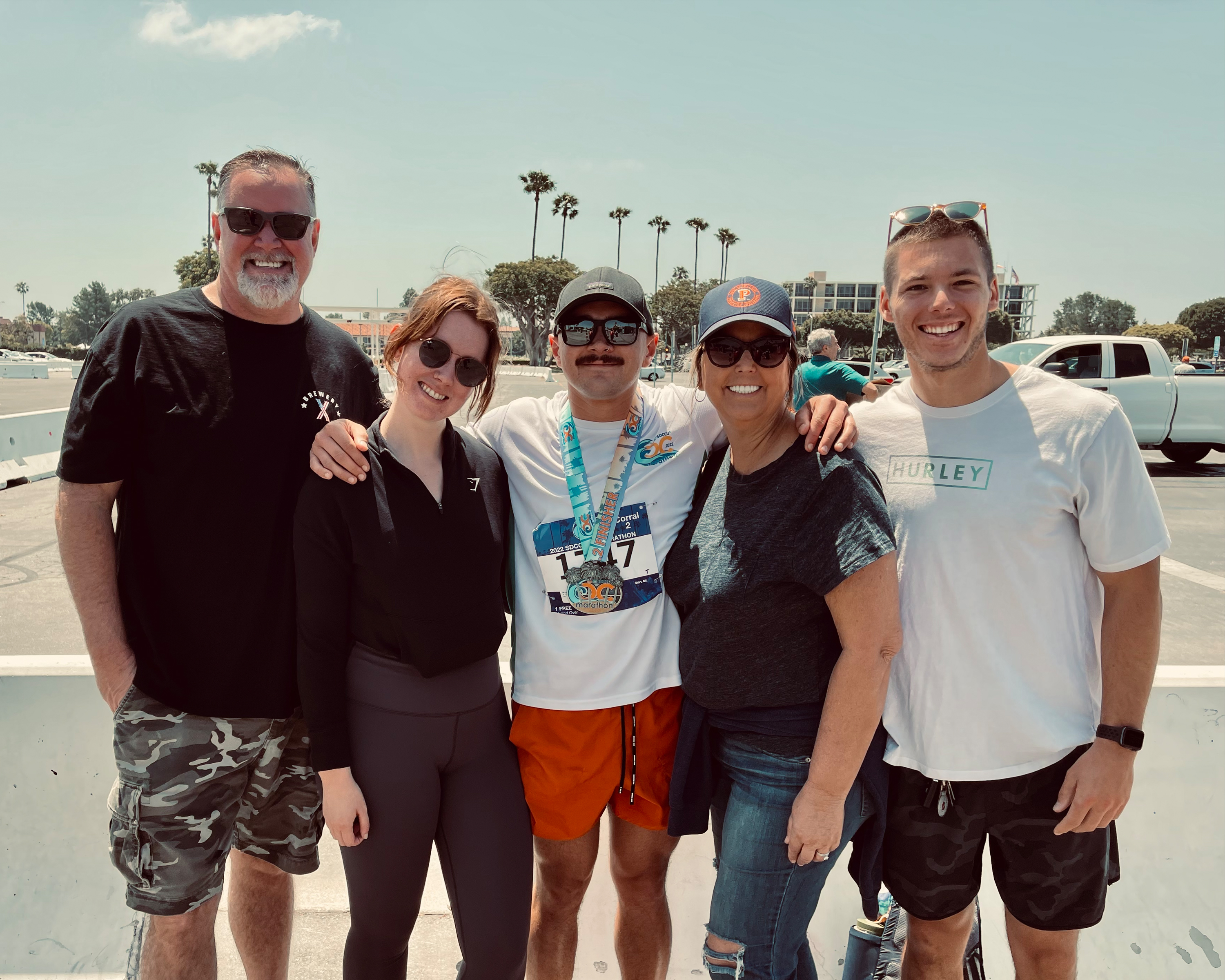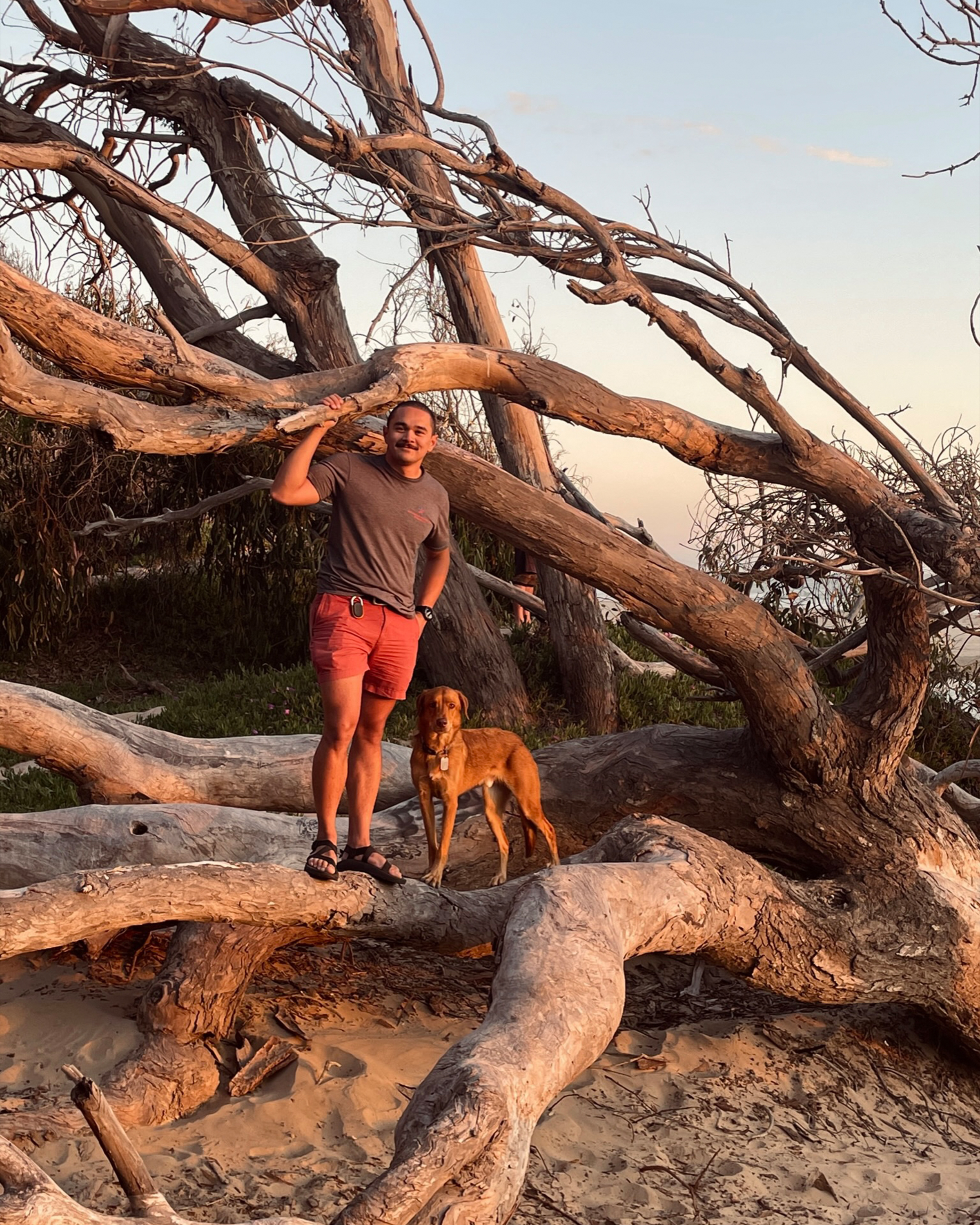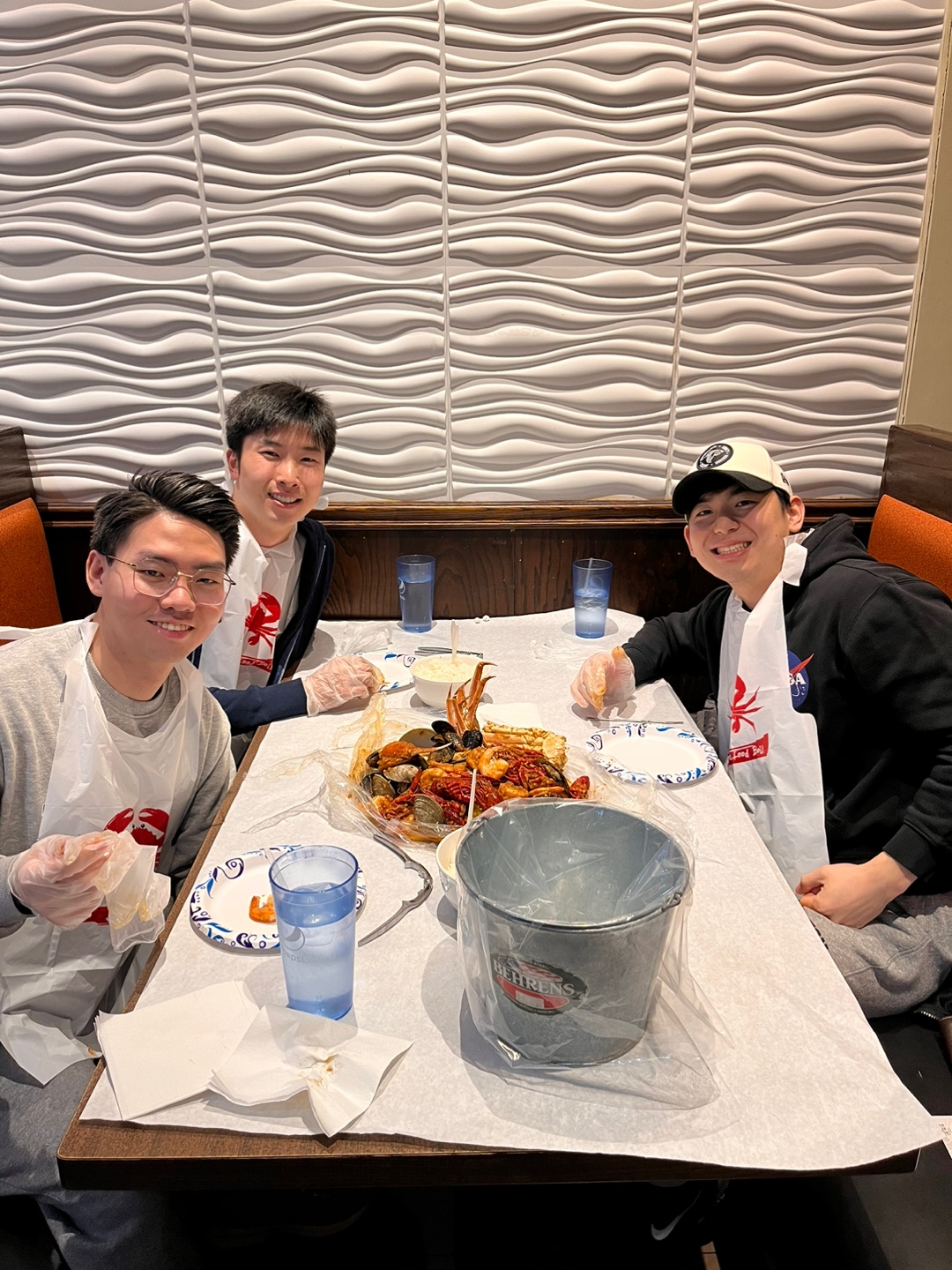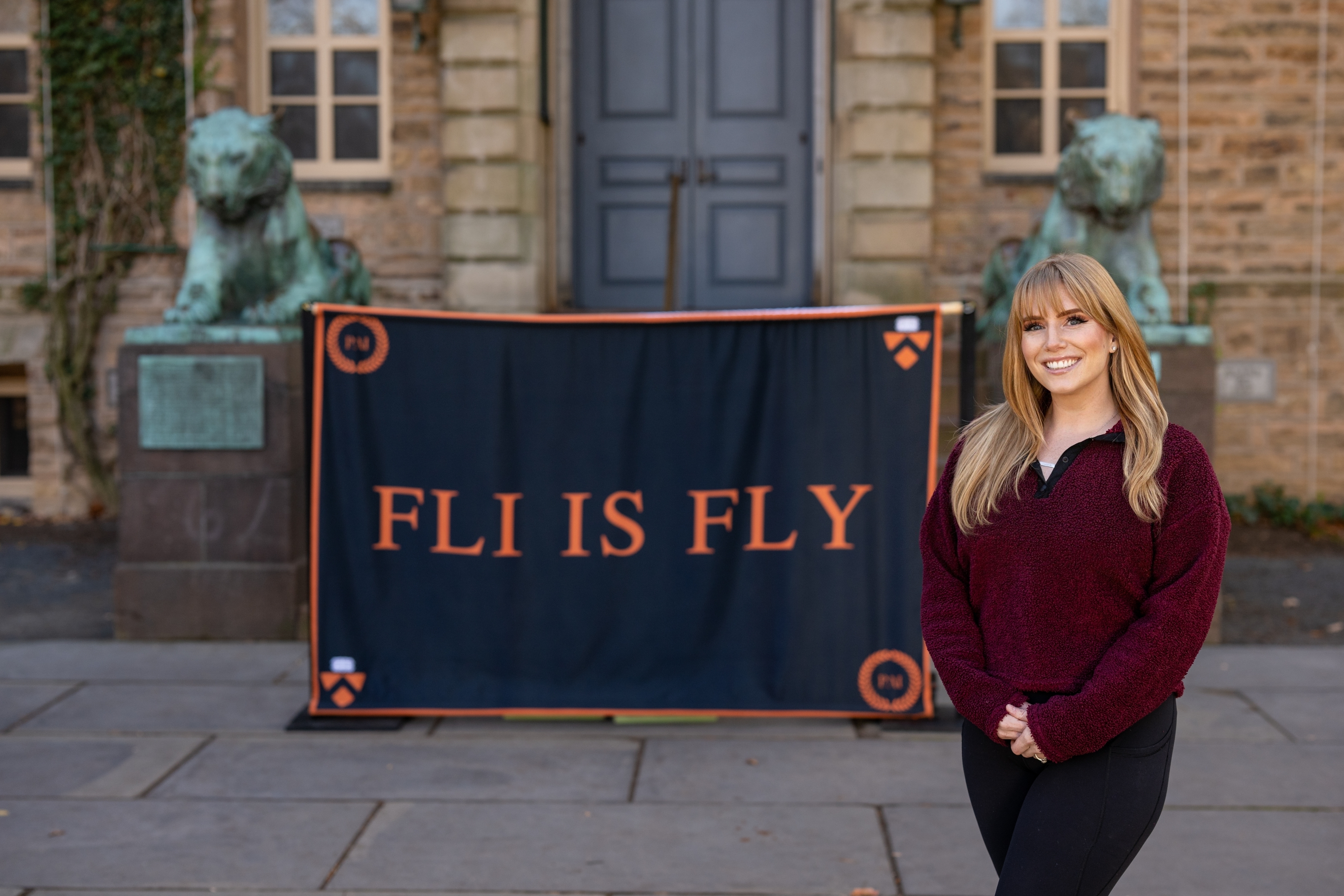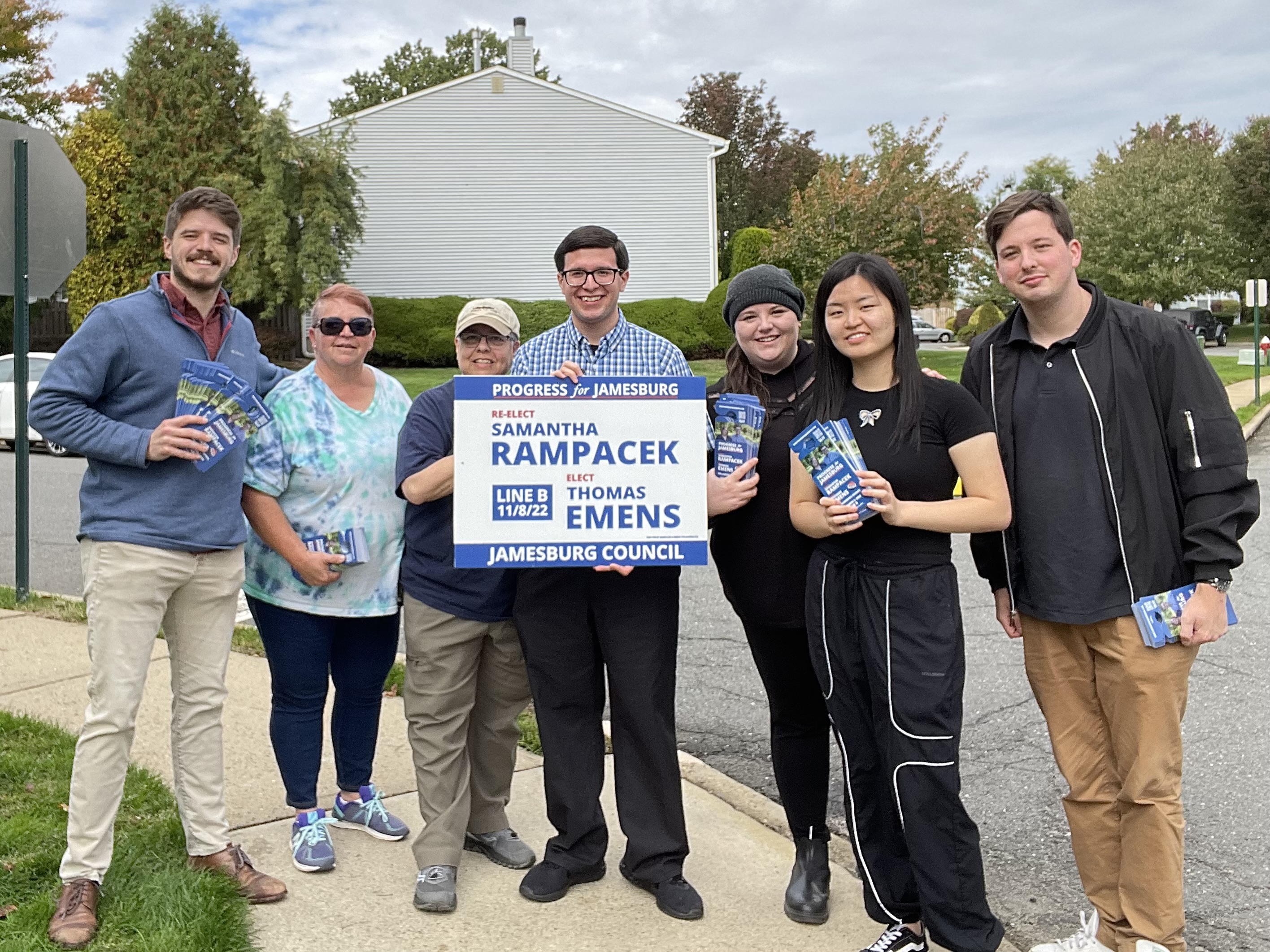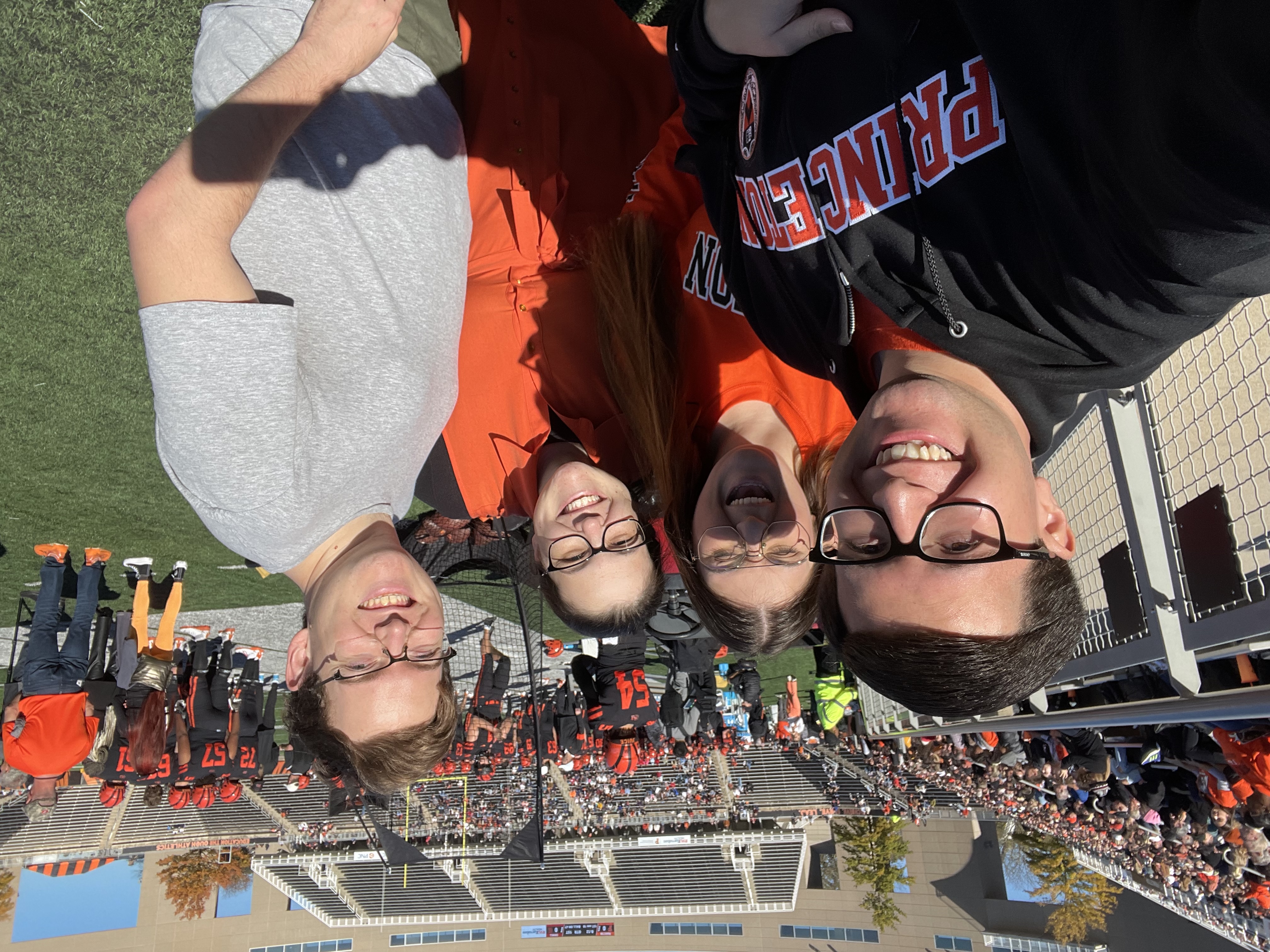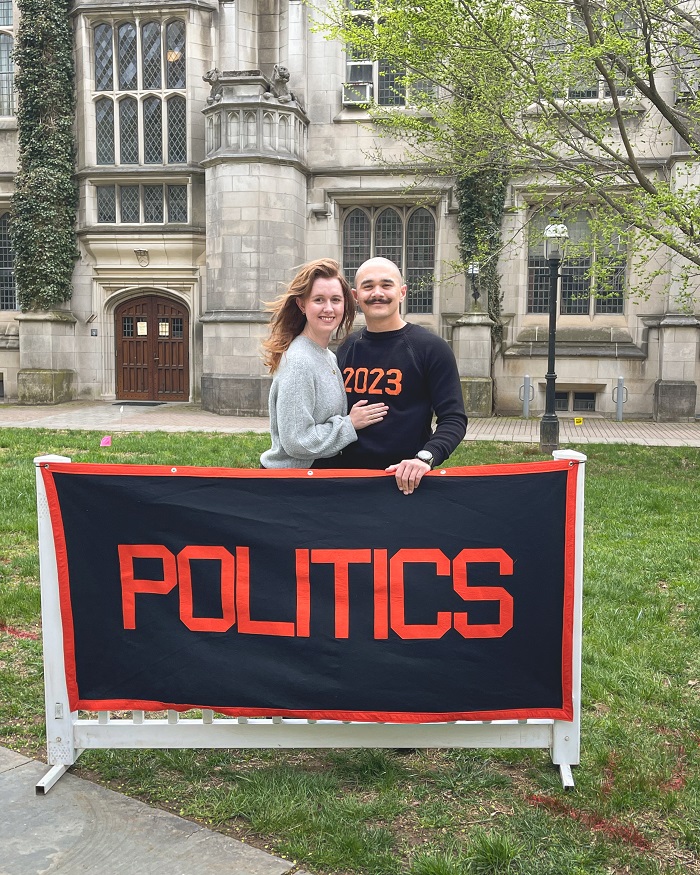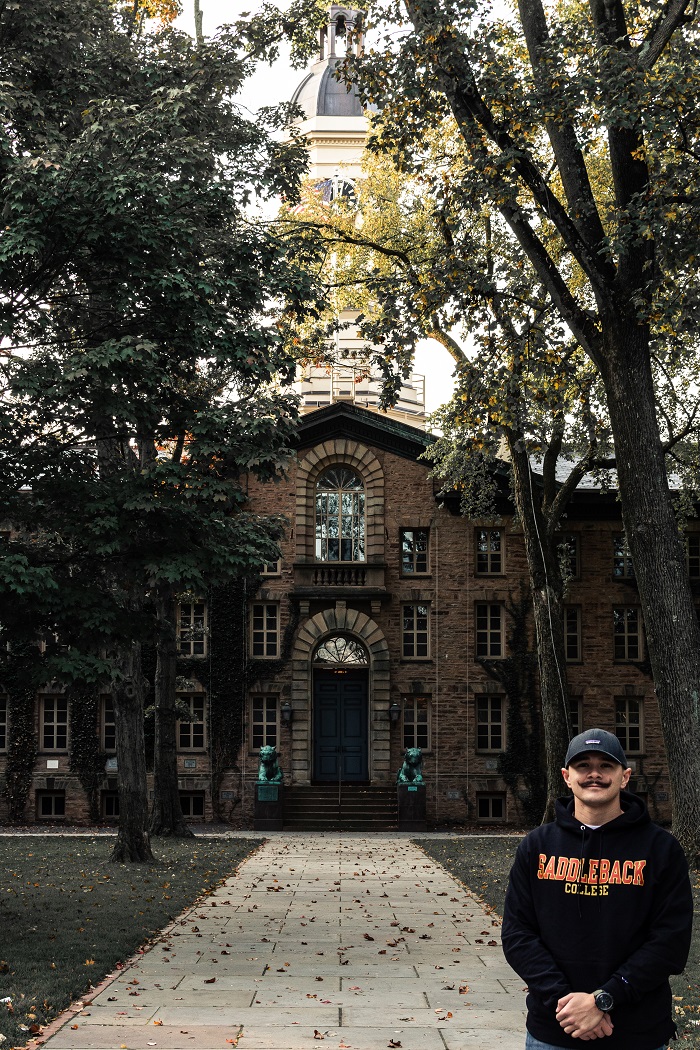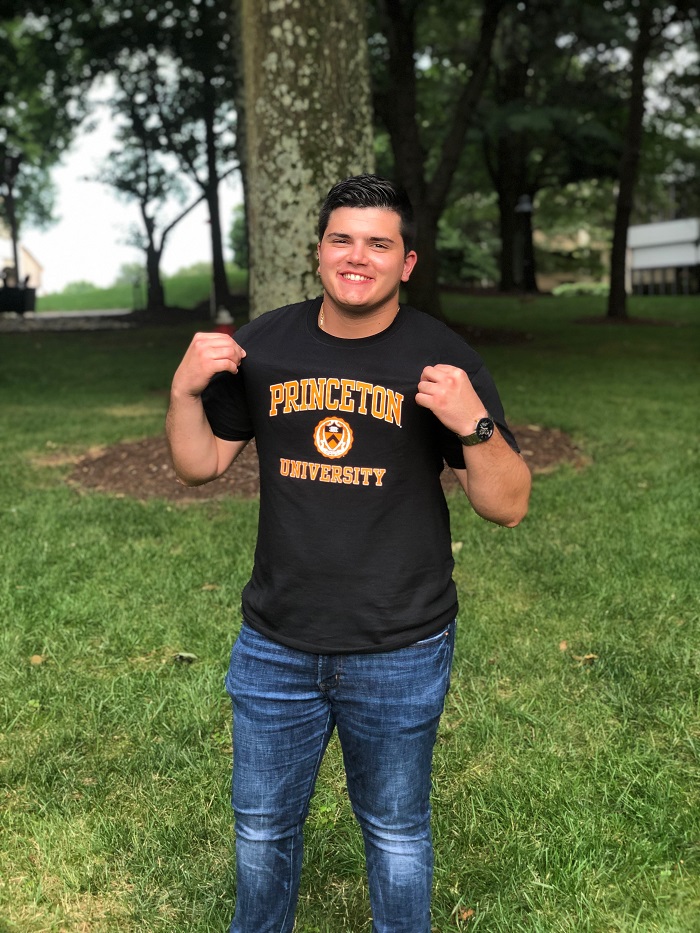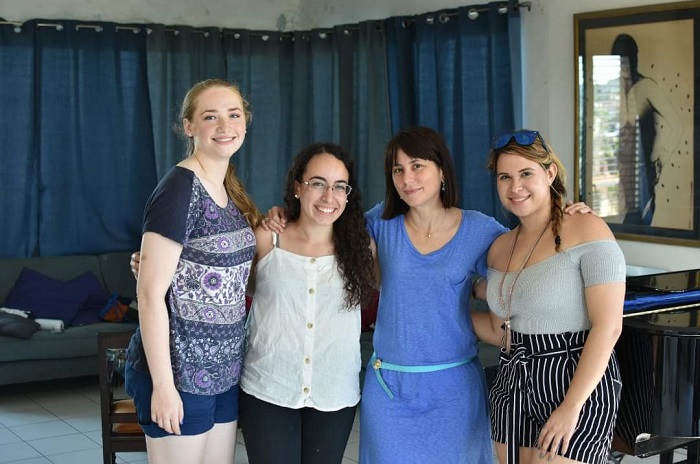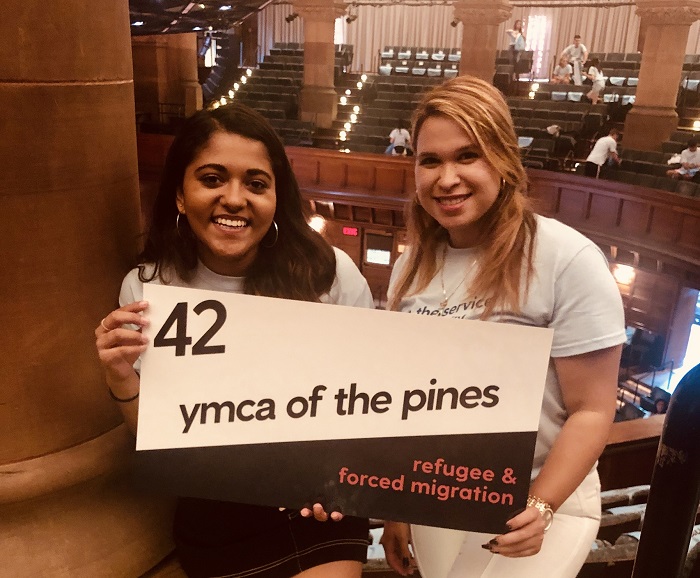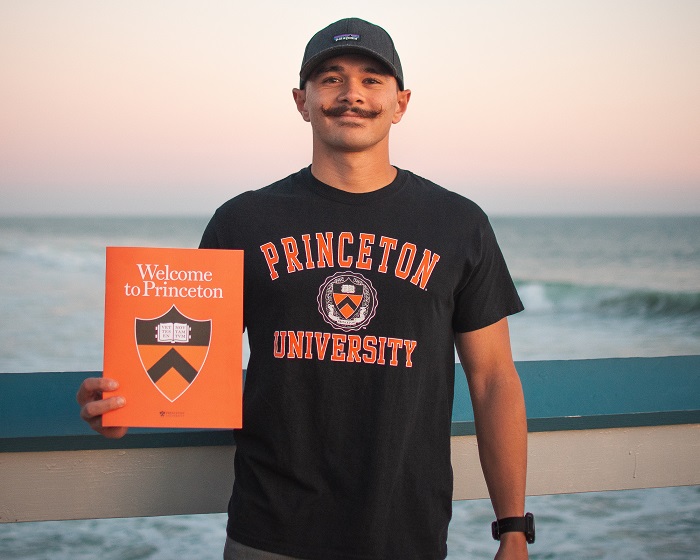Luke Hixson '25
Prior to Princeton, I served five years in the Navy as a Fleet Marine Force Corpsman attached to 1st Battalion, 5th Marines. I’m currently a Junior in the Department of Neuroscience, a researcher in the Peña Lab, and a member of the Glorious Tiger Inn. After graduating from Princeton, I plan to attend medical school.
Community
Princeton University is more than just a “prestigious institution;" it's a place where diverse communities come together to foster growth, inclusion, and support – a place where veterans can find an understanding and appreciative environment to transition back into civilian life while pursuing their academic dreams. The warm embrace I received from the Emma Bloomberg Center, fellow student-veterans, and the extensive resources available here made my transition from the military to academia seamless. But it doesn't stop there. Princeton's broader community is equally exceptional, nurturing a culture of collaboration and intellectual curiosity. The friendships I've formed with students from all walks of life have enriched my educational experience beyond measure. So, Why Princeton? It's the unique combination of a strong student-veteran community and the vibrant, inclusive spirit of Princeton as a whole. It's a place where I can grow academically, personally, and socially.
Victor Reynoso '26
I am from the West City of Puerto, Mayaguez. I left Puerto Rico when I enlisted in the U.S. Marines at 17 years old. I received an early Honorable Discharge from the Marine Corps so I could pursue my education at Princeton. I started here last year as a 22-year-old freshman, and I am a dog-dad of the two cutest dogs you will ever meet, and excited about the opportunities that Princeton offers me to explore my areas of interest before deciding on which major to pursue.
Academics
If I had to articulate what it is like to be a Princeton student, I would say that Princeton has the same mentality my drill instructors had; we train how we fight. In this regard, to Princeton, it is paramount that students receive a rigorous education, emulative of great real-world challenges. To better explain this, I can say that as a low-income student, I had never taken a computer science class before Princeton. However, three weeks after I started my first class at Princeton, we were asked to program a simulation of the solar system that took into consideration mass and gravitational forces. To be candid, this programming assignment had the most massive learning curve I’ve ever tackled. Nevertheless, it had to get done. So, I went to office hours, and I did not leave until it was finished – I refused to believe there was an “impossible” assignment. Personally, I think, that’s what Princeton is all about, constantly doing novel things that seemed impossible just three weeks ago. So, yes, Princeton academics can be grueling at moments, but they're also inspiring and stimulating. What's more, at Princeton, you are never alone, and someone is always willing to help. That's why I would not have it any other way.
Minh Truong '27
During high school, at 17 years old I enlisted in the Army National Guard and have been with the state of Pennsylvania for four years. I am still drilling monthly with my state and have two years left with the Army. I was accepted into Princeton's Class of 2025 but deferred for two years for Army training and a deployment last year. I just came back to join the Class of 2027 as a first-year. I plan to major in Economics and minor in Visual Arts, maybe also Finance, and am considering law school after graduation.
Co-curriculars
Students at Princeton can choose to participate in clubs and student organizations that allow for professional and personal development outside of the classroom, which I have found to be very rewarding and also practical.
The University is very generous in its support of student co-curricular organizations; this allows for very well-organized clubs run by students and community members who are genuinely committed to and passionate about their activities.
Clubs can vary widely based on interest, with everything from pre-professional, to sports, to affinity, to hobby-based. I am involved with a business club and a finance club, both of which provide me with valuable professional development opportunities, such as regular conversations with industry leaders, working on an endowed project, trips to national business conferences, networking, etc. I am also involved in a badminton club, and a literary publishing club for which I am a book cover artist. These spaces allow me to explore personal interests outside of academics that engage my hobbies in structured and funded environments.
All the co-curricular programming available on campus is diverse yet accommodating and void of superficiality. Commitment-intensive clubs require applications and interviews that single out those who really want to commit themselves to the organizations, while other groups are more low-key and open to all. Being a service member has been a great asset in these spaces; the experiences, knowledge, and work ethic obtained in the military sets veterans far apart from others in their potential contributions to these communities. So far it has been very rewarding to commit myself to activities that allow growth beyond the classroom, and I highly encourage those considering Princeton to look at all these offered opportunities.
Kenneth Simmons '27
I was the product of a military family and my parents decided to settle down in Fayetteville, North Carolina. When I enlisted in the Army, I knew that I needed to mature and grow as a person. I had the privilege to work as a laboratory technician and medic in Special Operations and in clinical settings. The lessons I learned were invaluable to me taking the next step in my career.
After separating from the Army after 14 years of service, I began my pursuit of higher education and enrolled in community college. This past summer I graduated from Fayetteville Technical Community College with my associates degree in science. I plan to major in philosophy here at Princeton, with the hopes of attending law school where I will begin a career in ethics for emerging technology.
Support Resources
I chose Princeton for many reasons; the sense that I would be welcomed into the Princeton Community and that accommodations were made for non-traditional/veteran students were among those deciding factors. As a parent, dog parent, and 14-year Army Veteran, I knew I would be very different from my classmates. At Princeton, there are many resources to make your transition out of the military and into higher education seamless, unlike any other institution I applied to. You have the option to live on campus in the undergraduate residential colleges, or if you have a family and pets, you can opt to live in graduate housing or off campus. This flexibility addresses a significant component of any student’s success–ensuring that things are okay at home. My two dogs Cali and Cloud, enjoy going on walks and admiring campus, and it is normal to bump into classmates and professors and strike up a conversation. Princeton also has world-class physical and mental health services, ensuring my physical and mental health needs are addressed. Thank you, Princeton, for knocking down barriers to education and allowing me to share my talents with this community.
Editor's note: A few other resources include the transfer and veteran programming though the Emma Bloomberg Center for Access and Opportunity, the McGraw Center for Teaching and Learning, the Writing Center, professors' office hours, advising in the residential college offices, and the Center for Career Development.
Andres Solorzano '26
I am from Long Beach, California. Before attending Princeton, I enlisted into the United States Army in 2016 and served in various components of the Army until the beginning of this year. I was a M1 Armor Crewman in the 1st Battalion, 64th Armor Regiment out of Fort Stewart, Georgia.
I am a first generation Guatemalan-American student. I am grateful to Princeton for giving me an opportunity unlike anything I could have ever dreamed of. I am looking forward to being challenged in the coming years, and I am ready to grow academically and personally alongside the amazing students here on campus. Upon graduating from Princeton, I plan on immediately pursuing an advanced degree.
Applying to Princeton can be very daunting. There is a lot of uncharted territory to navigate, particularly for student veterans. One of the biggest questions is always: “How will I be able to pay for this?” There’s no way I can afford it so why even bother applying, right? Wrong! Last year, Princeton enhanced its financial aid policy, guaranteeing independent students and families with incomes up to $100,000 a year will pay nothing.
Let’s not forget your earned educational benefits. Your GI Bill? Save that for graduate school! You do not have to utilize your benefits unless you decide that you want to use them. Many factors go into deciding where you will go to college, but don’t let money be a barrier--at Princeton, it isn’t anymore. Financial aid is one of the many ways we experience this university's recognition of the great value that veteran students bring to the campus population.







